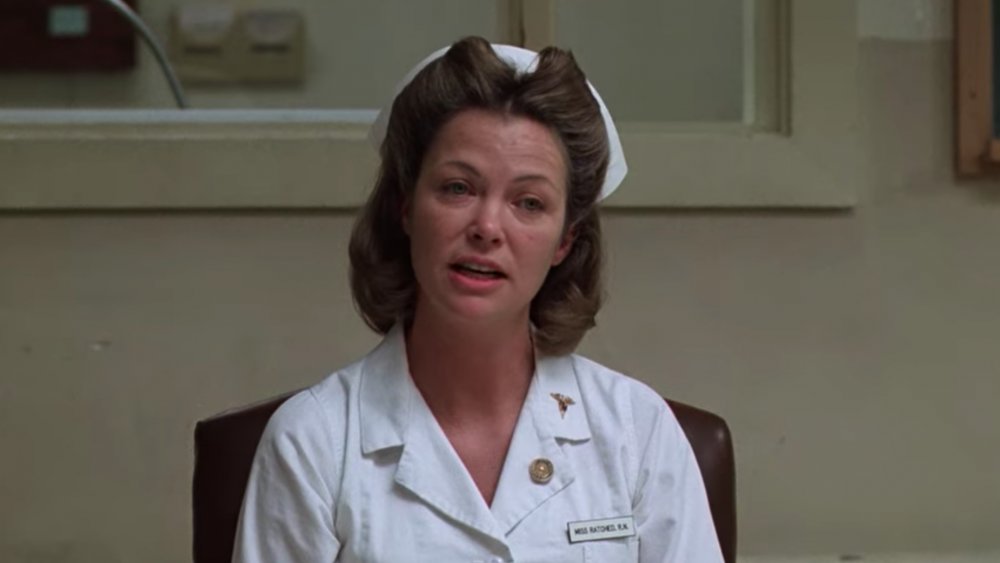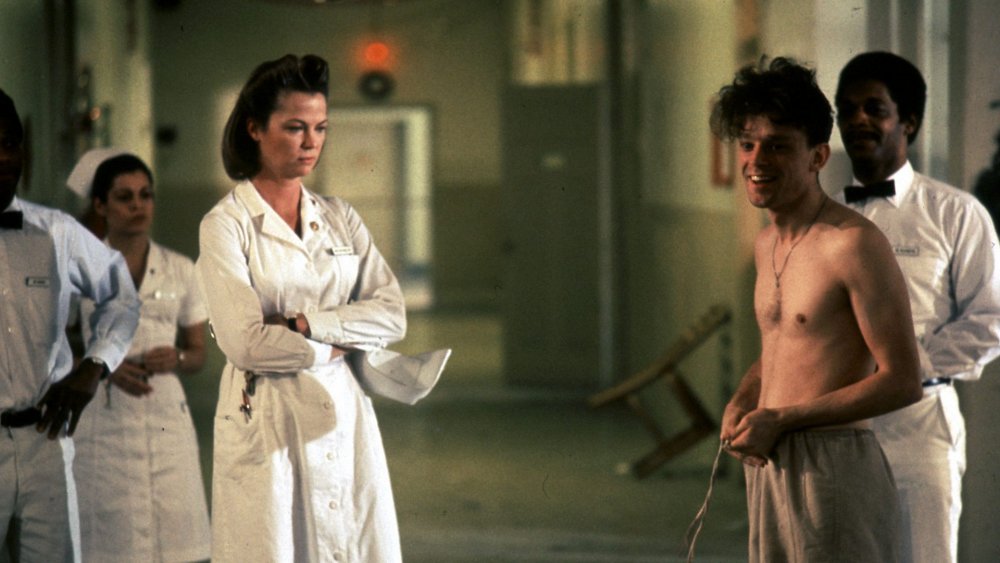The Iconic Role The Original Nurse Ratched Turned Down
Ryan Murphy's upcoming Netflix series Ratched has already created substantial buzz, by virtue of adding a new, glitzy and candy-colored horror entry to the producer's extensive resume, but it has also brought its source material, the 1975 film One Flew Over the Cuckoo's Nest, back to the fore of the public's mind. Sarah Paulson, a longtime favorite of Murphy, will star as a younger version of the celebrated literary-slash-cinematic character Nurse Ratched, the quiet yet ironfisted nurse in direct charge of the asylum floor in which both the film and book are set.
Paulson will be inheriting a character and legacy first put down by the actress Louise Fletcher, who put her permanent mark on cinematic history with her Academy-Award-winning chilling portrayal of banal evil. She faded away after that massive peak into semi-obscurity, whiling away the eighties and nineties in both movies and television. Outside of a stint on Star Trek: Deep Space Nine, she never drifted terribly far afield from the thriller or horror genre.
It's impossible to know , but perhaps that fate turned in the immediate aftermath of her most famous film, when Fletcher turned down what became a smash-hit movie and star-making role: portraying Carrie's hyper-religious, controlling mother in 1976's adaptation of Stephen King's novel Carrie. Piper Laurie took the role instead, which landed her an Oscar nomination of her own, and catapulted her to pop culture fame.
Carrie was too similar, too different
In an interview with Vanity Fair, Fletcher revealed her fateful choice in turning down the role, though she could no longer recall why she did. The movies came one after the other and were likely cast in rapid succession: it's entirely possible she just didn't want to do something so similar over again so quickly. She couldn't have known, then, that either movie would go on to be so celebrated, after all. Margaret White, Carrie's mother, is depicted on-screen as much more obviously unhinged, and arguably qualifies to be institutionalized in a place like Nurse Ratched's asylum, but both women are ultimately motivated by maintaining control at all costs. So, too, are they also defeated by similar heroic characters, each defined by maladapted chaos. Broadly speaking, the two characters have much in common, and all actors would prefer to avoid typecasting when scanning potential screenplays.
The biggest and possibly most critical difference to Fletcher, however, is the question of subtlety in performance. In the Vanity Fair piece, Fletcher talks a lot about her long process of creating Ratched with director Miloš Forman, and naturalism was at the core of both the actress' and the director's creative interests. She recalls later directors she worked under as less understanding of such a simple tenet: "The director [of 1987's Flowers in the Attic] didn't understand about villains. What's so familiar can be the most frightening thing."
Carrie is, well, rather defined by supernaturalism and hysterical character portrayals. Either of these reasons are viable for explaining that twist in fate — and while Piper Laurie was incredible and iconic in the role, one can't help but wonder what might have happened with Fletcher's career, if she hadn't turned down the opportunity.

